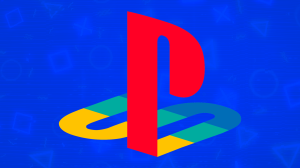Boruto: Naruto Next Generations has faced once consistent stigma since it first premiered: proving that it is a worthwhile successor to Naruto and Naruto: Shippuden. A lot of Naruto fans have been particularly hard on Boruto, slamming everything from the main character, to the fluffy filler that seems to be comprise most of the anime’s episodes. However, the Boruto manga has earned more of a respectable reputation with Naruto fans, due to its tighter focus on action and major franchise developments. And with the latest chapter of the Boruto manga, there have been some major twist revelations that not only change the series entirely, they have instantly transformed Boruto into a worthy successor to the Naruto saga.
Videos by ComicBook.com
Warning! Boruto Chapter 43 SPOILERS Follow!
The latest chapter of Boruto picks up with the fight between Team 7 (Boruto, Sarada, Mitsuki, and Kawaki) and Boro, the nightmarish bruiser that acts as enforcer for the Kara Organization. After disabling Boro’s Scientific Ninja Tool core, the evil shinobi goes full Akira into a body-horror monstrosity, which can only be stopped by the sudden revelation of Boruto manifesting a powerful transformation and power set.
As we learn by the chapter’s end, the Karma seal that was left on Boruto the moment he killed Momoshiki Otsutsuki was actually a means of resurrection for the villain. Momoshiki is evidently alive and well inside of Boruto, able to seize control of the young shinobi’s body at critical points – like when Boruto is about to be annihilated in battle. Momoshiki destroys Boro with a massive Rasengen, and returns control of Boruto’s body, with Boruto having no memory he was ever there.
This reveal that Momoshiki Otsutsuki is alive and using Boruto as a vessel totally redefines the future that Boruto teased us with in the series’ opening flash-forward scene. We though we saw a teenage Boruto taking on the other guy marked by a Karma seal, Kawaki, but the manga has now up-ended that initial perception. While the exact details are still sketchy, the “Boruto vs. Kawaki” battle fans though we were building up to is now clearly another pivotal battle between Earth’s shinobi and the Otsutsuki Clan.
With that reveal, Boruto has now established itself as a fitting continuation in the main storyline of the Naruto Saga. The themes of Naruto’s struggles in his formative years revolved around the titular hero trying keep a dreaded monster at bay inside of him (Nine-Tails), while trying to keep his world alive and safe from some very real monsters on the outside. Now Boruto has inherited that harsh legacy, which pretty much kills fan criticism that Naruto’s son is too soft and spoiled to ever become a true Shonen hero. Moreover, the reveals about both Boruto and Kawaki have revealed that not only is Momoshiki still an active threat, but Naruto: Shippuden’s big bad, Kaguya Otsutsuki, was just one half of a pair. Her other (better?) half, Isshiki, is hiding out inside Kara’s leader, Jigen, until Kawaki can become the new vessel for Isshiki.
So what does this all mean?
It means that Boruto isn’t just some YA coming-of-age ninja story. The war between the Otsutsuki and Shinobi nearly consumed the world several times during Naruto’s life, and now we know that war never ended. Like Naruto, Sasuke, and the rest of Hidden Leaf’s leaders have been hinted all throughout Boruto, the era of peace that Boruto and his friends were raised in was always too tenuous to last. The theme about whether the younger generation can ever match the power and courage of the elder generation is going to get put to the test sooner before later, and Boruto will have to learn the same lessons about carrying burden, suffering hard loss, and making impossible sacrifice that Naruto did.
…And that is the sort of story the fandom definitely can get behind.
Originally created by Masashi Kishimoto for Shueisha’s Weekly Shonen Jump in 1999, Naruto follows a young ninja, with a sealed demon within him, that wishes to become the leader of his home village. The series ran for 700 chapters overall, and was adapted into an anime series by Studio Pierrot and Aniplex that ran from 2002 to 2017. The series was popular enough to warrant a sequel, Boruto: Naruto Next Generations which is set several years after the events of the original Naruto story and features the children of many of its key characters such as Naruto and Hinata.








